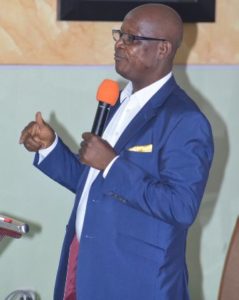Ghana government asked to consider illicit enrichment as an offence

Mr Charles Ayamdoo, the Director of Anti-Corruption, Commission on Human Rights and Administrative Justice (CHRAJ), has called on government to consider making illicit enrichment as an offence to prevent acquisition of wealth by both public and private officials.
He said even though existing legislative measures had not indicated that illicit enrichment is a corrupt offence, Ghana is in compliance with the minimal requirements of Article 5, Paragraph 1 of the AU Convention.
The article require state parties to either criminalise illicit enrichment or provide assistance and cooperate with other states making a request adding that, it is non-compliant with article 20 of the UNCAC, which contains no option other than criminalise it.
Mr Ayamdoo made the call at a workshop for Civil Society Organisations and the media to enhance awareness on Ghana’s obligations under the African Union Convention on Preventing and Combating Corruption (AUCPCC) organised by the Ghana Integrity Initiative (GII) in collaboration with Transparency International.
The AUCPCC is a shared roadmap for states to implement governance and anti-corruption policies and systems on a national and regional level.
The Convention contains strong provisions that could go a long way in resolving corruption challenges across the continent.
The African Union recognising the negative impact of corruption on the socio-economic development of the continent adopted a convention in 2005 with many member states signing onto it as the main framework to guide their efforts in combating the menace.
The AU also set up the African Union Advisory Board on Corruption as the institution to facilitate the anti-corruption crusade.
He said Ghana’s effort at criminalising corruption dated back to 1960, with the enactment of the Criminal Offences Act, (Act 29) section 239, yet corruption is still a major developmental challenge in the country even though other legislations have been passed to address the menace.
According to the Director, Ghana ratified the Convention in 2007 which entails 28 articles, saying that for the past 15 years the country had not implemented and for that matter has gaps in the provisions in the area of access to information, illicit enrichment, money laundering, assets declaration and code of conducts, political party funding, CSOs and media as well as confiscation and seizure.
Mr Ayamdoo commended government for implementing measures, strategies such as the creation of the Office of the Special Prosecutor to support the fight against corruption.
He therefore appealed to government to speed up reforms of the assets declaration regime to curtail anticipatory declarations and endure more transparency in the regime as well as nominate one lead institution responsible for ensuring the reporting of the implementation of the AU Convention.
Mrs Mary Addah, the Programmes Officer GII, said corruption persisted despite the efforts which reflect the need for stronger leadership and oversight institutions and a reorientation of attitudes and perceptions as citizens not spectators.
She said the AU recognises the impact of corruption in the continent, and dedicated 2018 to reviving efforts to minimise it if not eradicate the canker from member states.
It was for this reason that the GII with support from Transparency International chapters in Africa are implementing a cross regional project titled ‘Towards Enforcement of Africa’s Commitments to Anti-Corruption: Civil Society Engagement within the 2018 African year of Anti-Corruption’.
The aim of the project is to equip anti-corruption activists to take on information relating to the AUCPCC to facilitate deeper engagement with African governments on their commitments against corruption during this “African Anti-Corruption Year” and beyond.
Source: GNA
